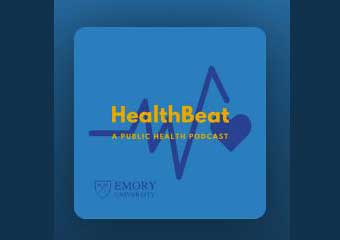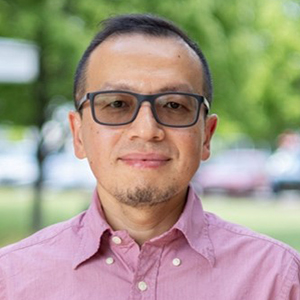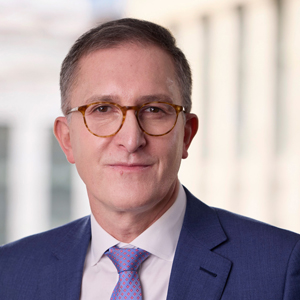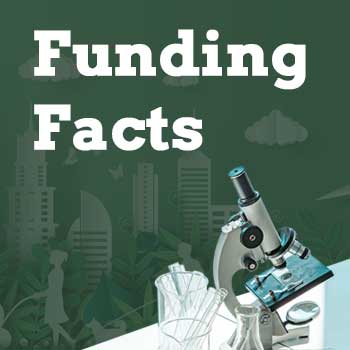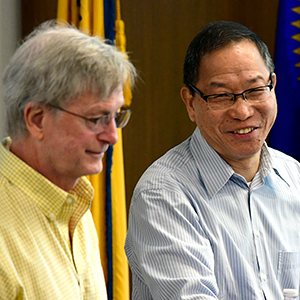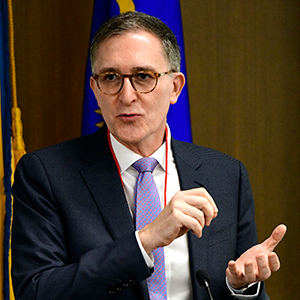Two scientists with ties to NIEHS were recognized for research excellence and service as part of the National Academy of Medicine’s annual meeting held Oct. 9. Kenneth Olden, Ph.D., director emeritus of NIEHS, was honored for distinguished service, and M. Daniele Fallin, Ph.D., of Emory University and an NIEHS grant recipient, was one of 100 new members elected to the academy.
First-class scientist and humanitarian
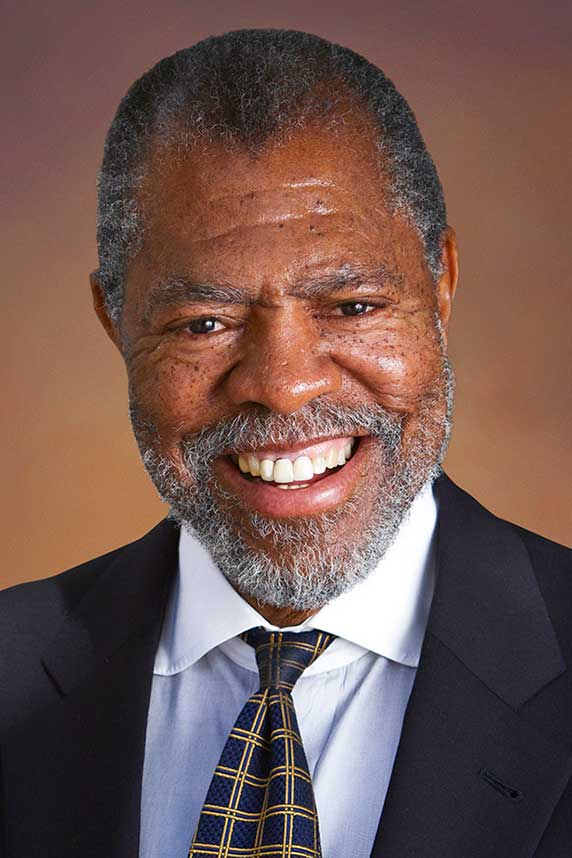
Olden, who was elected to the academy in 1994, received the Adam Yarmolinsky Medal. The medal is awarded to a member from fields such as social and behavioral sciences, law, public policy, and administration for distinguished service over a significant period of time.
“Throughout his distinguished career, Olden has contributed to the health of all Americans as a first-class scientist and a humanitarian with a lifelong focus on the environment and justice, particularly for people living in poverty, children, and people of color,” the academy wrote in a press release.
The academy noted Olden’s contributions to its mission in multiple ways.
- During his tenure leading NIEHS and the National Toxicology Program (NTP), Olden made environmental justice a priority through education and health and science investments in marginalized and underserved communities.
- He also worked with the Environmental Protection Agency (EPA) to establish the NIEHS/EPA Children's Environmental Health and Disease Prevention Research Centers. The centers work to better understand and reduce effects of environmental exposures on children's health.
- In addition, Olden, a cell biologist and biochemist by training, supported establishment of the National Academies’ Roundtable on Environmental Health Sciences, Research, and Medicine; served as the founding dean of the School of Public Health at Hunter College, City University of New York; and directed the EPA’s National Center for Environmental Assessment and Human Health Risk Assessment Research Program.
"I was pleased to be recognized for my efforts over the past 35 years to expand the concept of the environment beyond chemical and physical agents to include social, economic, and behavioral factors — that is, the so-called social determinants of health,” said Olden. “It is especially satisfying to see that social determinants are now being integrated into electronic medical records for use in management of various chronic diseases."
Preventing often neglected diseases
Fallin’s election to the academy is one of the highest honors in the fields of health and medicine. New members are elected by current members based on their significant contributions to the medical sciences, health care, and public health. According to the academy, Fallin was chosen based on her international leadership in elucidating genetic, epigenetic, and environmental mechanisms for neuropsychiatric and developmental disorders, particularly autism, Alzheimer’s disease, and schizophrenia.
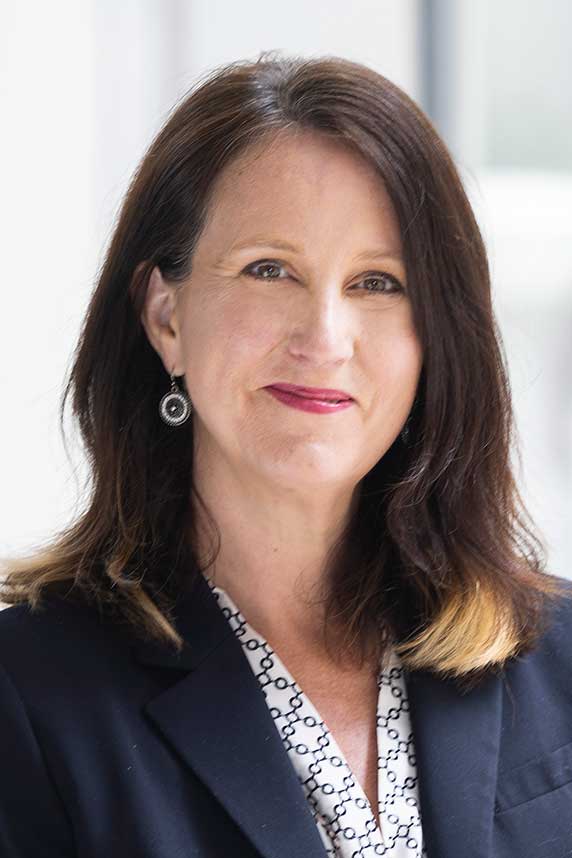
“As dean of public health at the Emory Rollins School, she contributes to population health efforts to recognize, understand, and prevent these neglected diseases,” the academy wrote in a press release.
“When I heard the news, I was excited to contribute to NAM and grateful for all of the collaborators in my scientific journey who made our work impactful and made research so much fun,” Fallin said.
NIEHS has supported Fallin’s research through several grants over the years. Of note, Fallin led the Maryland site and later cohort maintenance of the Early Autism Risk Longitudinal Investigation (EARLI) study for more than a decade when she was a professor at the Johns Hopkins Bloomberg School of Public Health. She continues to contribute to research designed to expand the study and others, which follow and gather data about pregnancies, environments, and early child development. The goal is to uncover how specific environmental risk factors and genetic susceptibility together may cause autism, so the disorder can be better treated and prevented.
(Lindsay Key is a contract writer for the NIEHS Office of Communications and Public Liaison.)





